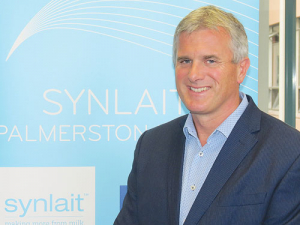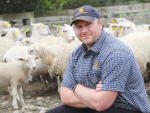Independent dairy processor Synlait is to set up an R&D centre at Massey University, Palmerston North.
Synlait managing director John Penno says the move is aimed at developing expertise and capability in food technology.
Prompting this is Massey’s “excellent” food technology set-up, including Food HQ, and the opportunity Synlait staff will get to rub shoulders with other disciplines, to the company’s benefit.
The Massey proximity and the presence of FoodPILOT -- one of the New Zealand Food Innovation Network’s four hubs -- will see the Synlait facility at the forefront of innovative food technology research and commercialisation.
Synlait will initially spend $7 million on the facility and employ four R&D staff there permanently. It will lease laboratory space and use some of Massey’s technical facilities including its pilot dairy plant, in the same building.
The R&D centre will focus on new product development, process technology and packaging.
Says Penno, “After many years of specalising in spray dried products -- milk powders and infant formulas -- we are now moving into a category we call ‘everyday dairy’.
“We are now building a large facility in Canterbury where we have a contract with Foodstuffs South Island to supply all its house-brand milk products. That’s a start, but we have ambitions to use that as the base for a range of liquid export products.”
These could include drinking milks, cream products, fermented drinking products and even liquid infant formula. “For years, in the market, we have seen these products and the growth in demand; we’re wondering why they couldn’t be made here and shipped to China and South East Asia. Obviously because of the distance they would have to be long lifestyle products.”
The R&D facility will help Synlait understand more about milk and its uses, Penno says. The firm has a long way to go in fresh products, with their new disciplines and manufacturing processes.
“We can employ people with a history in these things but it’s a different area of expertise from what we now have in our organisation; and there is Massey’s pilot dairy plant.”
Penno champions interdisciplinary research and is a good example of it himself, having an agricultural science degree and a PhD from Massey, supervised by professor Colin Holmes (died June 2016).
Great research is done in collaboration, requiring people who understand the technical elements you are trying to deal with then working with a company with a channel to market and a focus on consumers.
“I have learned about manufacturing, the market and the modern, wealthy consumers we are targeting; they know about the world and want to know about products -- that they are produced in the right away and in a way they can be proud of. And they know the quality of products is more than just what happens in the factory: it goes all the way back to the point of production.”
University delighted
Synlait's intention is immense, says Massey University vice-chancellor Jan Thomas.
Massey has always worked hand-in-glove with industry partners, she says.
Synlait working on campus at its business will allow the university to help with research and give the students opportunity to work in the business.
She wants the university to get an on-the-ground sense of what the real problems are for industry, she says. “We can assist in the solution which then drives that innovation and productivity.”
Thomas wants to see benefits flow for companies and for New Zealand.
“We would like to see more of that co-location on our campuses for likeminded businesses, so we are able to work for mutual benefits especially in food and technology. This is critical for the Palmerston North campus, for Manawatu and for NZ.”
She says the deal with Synlait links perfectly with Massey’s desire to integrate its research and teaching with industry.


















